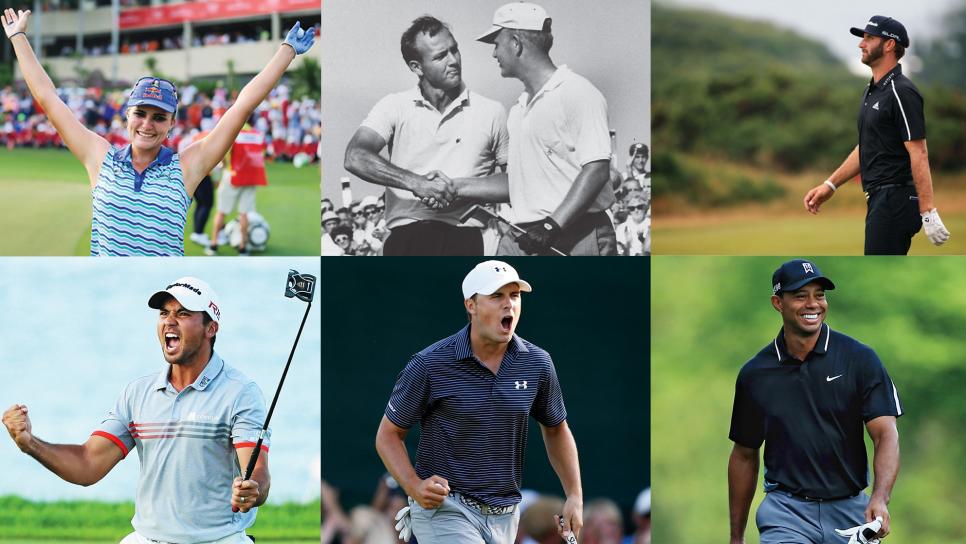EDITOR'S NOTE: Amy Cuddy, Ph.D., is a social psychologist and associate professor at Harvard Business School. Her 2012 TED Talk, "Your Body Language Shapes Who You Are," has been viewed 34 million times. Published in December 2015, her best-selling book Presence: Bringing Your Boldest Self to Your Biggest Challenges analyzes how posture affects performance. Assistant Editor Keely Levins interviewed Cuddy on her theories and how they apply to golf.
Q: Your TED Talk and your book focus on power posing. What do we need to know?
People tend to think body language is about communicating with others, not with the self. Body language is really about what your body is saying to you, not what you're saying to other people. When you use your body to respond to situations, especially stressful situations, in a powerful way, it becomes self-reinforcing. I deal with this a lot in business settings, but elite athletes know it's true. Sport-psychology studies show that posture influences a person's performance.
What does it look like to respond powerfully?
Power is about taking up space. The ultimate power pose is what gymnasts do right before their routines, when their arms and heads go up. That pose is the universal sign of power and pride and victory. I'm not saying you should be doing that on the golf course. Anything that takes up space will work. When you're just standing, make sure you have your feet set wide apart and your hands on your hips. When someone else is hitting, don't hunch over. Take up space.
It's the same when you're walking between shots. You can be powerful then, too. Expansive movement is as important as expansive posture. So take long strides when you walk, swing your arms. You want to move boldly and put some vertical bounce in your step. Carry yourself with your shoulders back and down instead of slumping or pinning your arms down.
No matter what shot you've just hit, try to keep yourself from tensing up. Remember to breathe deeply and slowly. This is a time for you to be secretly doing golfer yoga. You'll be preparing to perform while everyone else is thinking about the last shot—or the next shot—or just talking.

Photo by Getty Images
How does that work to make you ready to play your best?
We know that standing and moving with some purpose makes you feel powerful. Study after study shows that. And when you feel powerful, all of a sudden you see challenges not as threats but as opportunities. You're much more likely to want to compete. Your executive function is better, so you can think more clearly. Your working memory is better. You're not second-guessing yourself so much. You're more able to be present and to focus on what's in front of you instead of what you fear might be happening.
It's easy to get frustrated after a bad shot. What happens when you let yourself slip into a non-powerful pose?
There aren't many people who are going to play golf and not feel a little competitive. It's almost impossible to do it recreationally and not want to do it well. But you're not going to play well if you're focused on winning. You want to do it well? Fine. The first thing you have to do is stop focusing on getting the best score. When you focus on winning or score, your body goes into a fight-or-flight mode. You're feeling threatened, and when you feel threatened, your nervous system is no longer about performance. It's now about getting you out of that situation. That completely undermines your ability to play well.
When you're in this threatened state and feeling powerless, your heart rate can go through the roof, which is the last thing you want. Your cognition takes a nose dive. You lose your ability to focus on a goal. You lose creativity, your view of optimism, your self-confidence, and you're less likely to take risks. These are all things that you need in a round of golf, and you've just lost them. You even lose the ability to see objects from a perspective other than your own. Say your shot has ended up behind some trees. If that makes you feel threatened or anxious, you're not able to see alternative perspectives. You're less likely to hit a good shot when there are obstacles, because you don't have the creativity or perspective necessary to do it.
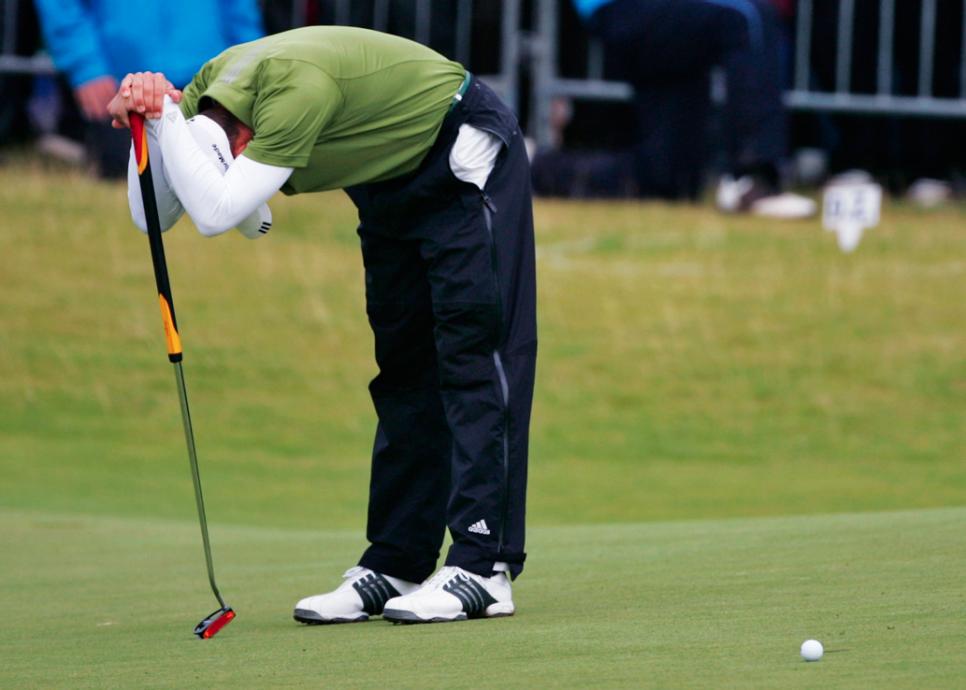
It'd be impossible to play well with all of those negative things going on. How do you pull out of that spiral?
You need to be sturdy, strong and super calm. There are two categories of things that will get you there. One is your body posture, which we've just talked about. Anything where you start to curl into a ball, even if it's subtle, is the worst thing you can do. Whenever you have any small failure, stop yourself from collapsing, because collapsing will only make you feel worse.
Two is your mind-set. You need to focus on little nudges as goals instead of score-based goals. Something where you get lots of tries, like I'm going to make sure I finish my swing today.
Focusing on score does not make you a better golfer. Focusing on the movement itself, in that exact moment, that's what can make you a better golfer. You're going to gradually get better, but it's not a perfect linear relationship. You'll have some ups and downs as you go, and that's OK. The funny thing is, if you focus on those little nudges, the pieces start to come together, and you have a cognitive memory and a muscle memory of doing it well. Ultimately, it will be easier to get to that thing you wanted, which was shooting a low score or winning.
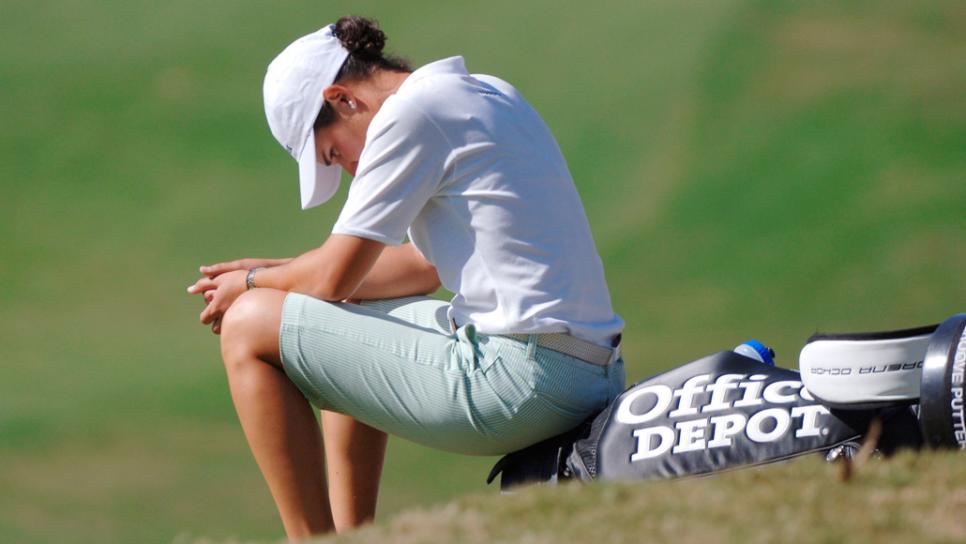
There's so much added pressure in golf because when you're hitting, everyone has stopped and is looking at you. That's not a stage most people are used to being on in their day-to-day lives.
Right. When you're creating all the action, like you do in golf, it's so much more nerve-racking. You're setting everything up yourself. To handle that, you need to first get in your power pose. And you need to think about self-nudging, how you're going to be better at it each time. You've got to believe that you're going to get better incrementally. That's how humans work. You don't just say, I'm gonna kill it tomorrow, and then have that happen. Maybe that works in the movies, but not in real life.
That's why New Year's resolutions fail: The goal is usually way too big and way too distant. Think of a round of golf, a whole day of being out there, there are a million things happening. If your goal is to win or shoot a certain score, there are a million opportunities to fail between the start and the finish. And every time you fail on the small scale, you feel like you've failed overall. And that's why people sometimes end up thinking, I can't do this. I quit.
You need to focus on little nudges as goals instead of score-based goals. Something where you get lots of tries, like I'm going to make sure I finish my swing today.
What kinds of goals should golfers be setting?
They need to be process-based goals. You have to focus on the process, not on some concrete outcome. Even if it's a little concrete outcome, the process is so much more important. For example, I'm a skier. I try to focus on small goals like making beautiful turns, not getting down the mountain faster. I want to make fewer stops on the way down. I want to get through a section I find intimidating as if it were any other part of the mountain. There are so many positive things to focus on, and I'm sure it's the same for golf.
Golfers are pulled out of that good mind-set because it's easy to get discouraged, either by others playing better or the difficulty of the course. How can they stay positive?
Situations where you feel like you're being judged and where the stakes feel high make you feel powerless. Now, you choose to construe things that way. Yes, we're being judged. We're always judging each other. How much do you want to focus on that? It's up to you. But you're not being judged as harshly as you think you are. And the stakes feel high because you're focusing on outcomes too much. The stakes really aren't high. Tomorrow you're going to be the same person. In the end, the game of golf is not going to change who you are.
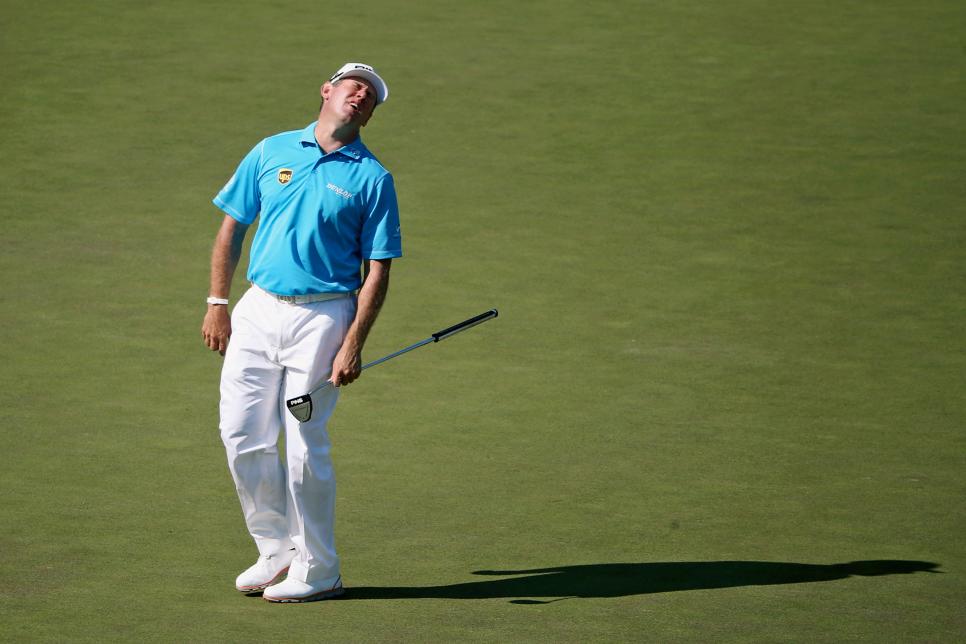
In golf you have to quickly bounce back. If you hit a bad shot, you have maybe a minute before you need to get back up there and make another swing. Isn't that tough?
It is. Athletes who do well have low cortisol [a hormone that helps the body handle stress] reactivity, which means it doesn't spike. When people lose, their testosterone [which affects competitiveness] drops very quickly, and their cortisol tends to spike. So, if you do something poorly and you construe it as failure, that's going to cause your testosterone to drop. You're going to lose your general sense of being able to play and do well. So it's about how you construe it. When you do have something go wrong, you can say, OK, that didn't go well, but I've got another chance at it in a minute. If you think about every bad shot definitively as a failure, that's really going to hurt your performance.
If you're able to get yourself to a place where you're focused on the process, what do you do when you actually feel like you've mastered one of your small goals?
You celebrate it. You have to. And a lot of that comes down to whom you're with, too. You have to be with people who make you comfortable, who aren't too competitive about it, who will celebrate with you. When I'm skiing, and I feel like I just got through some expert terrain, I want to say, "That was great. I made it!" It's good to do that.
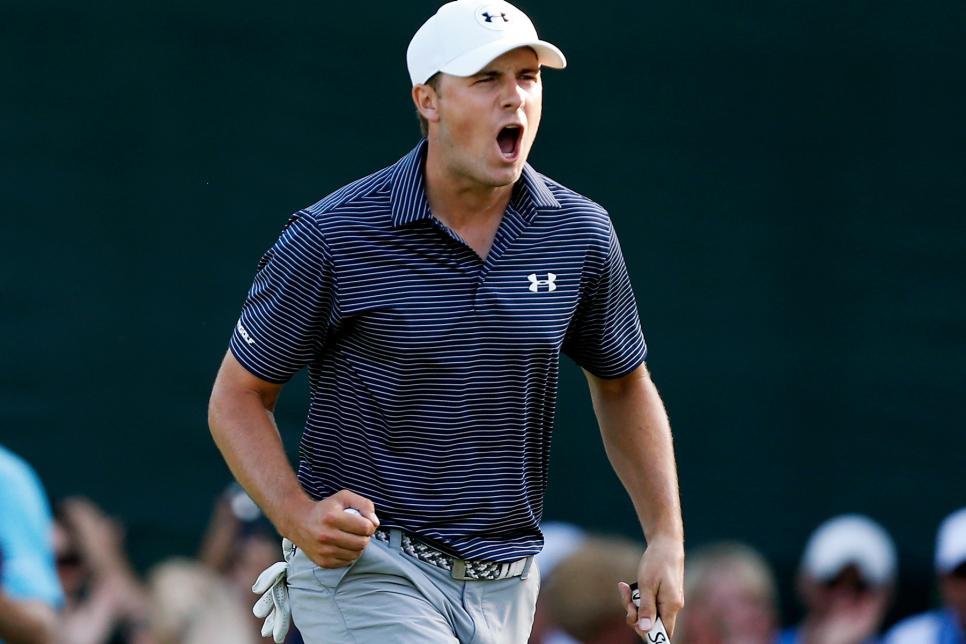

.jpg)
